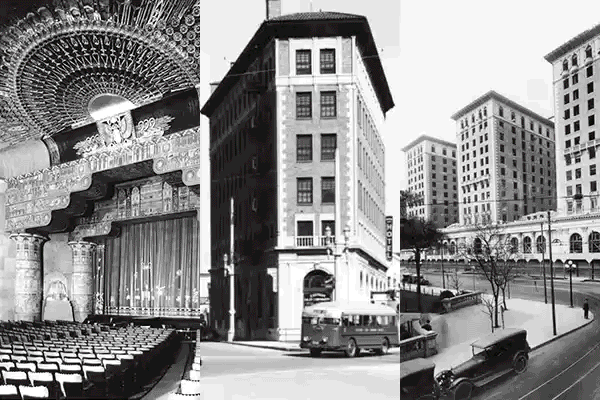Memorable Magnani in ‘Mamma Roma’
- Share via
Pier Paolo Pasolini’s second feature, 1962’s “Mamma Roma,” which begins its first local theatrical run Wednesday at the Nuart, is one of the director’s finest. We meet its heroine (Anna Magnani, at her incomparable, volcanic best in the title role) just as she has given up streetwalking, having scrimped and saved for years, to open a produce stand in an open-air Roman market and to reclaim her teen-age son (Ettore Garofolo), who has been raised in a small town and whom she overwhelms with an almost seductive mother love.
The film is marked by some extraordinary tracking sequences as Mamma Roma strides through the night, proudly announcing her dreams and feelings to a chorus of passersby--and also by a climactic image of crucifixion. The late film historian Ephraim Katz aptly remarked that Pasolini’s entire career was characterized by “a brave attempt to reconcile his allegiances to Marx, Freud and Jesus Christ.”
Information: (310) 478-6379.
Great Bad Griffith: Leave it to D.W. Griffith to envision an “old dark-house thriller” as a vehicle for the struggle of true love against the evils of greed and selfish passion in which the working of fate is shaped by the unleashed forces of nature--i.e., a spectacular climactic tornado a la DeMille.
As a suspense thriller, Griffith’s 1922 “One Exciting Night” (Wednesday at 8 p.m. at the Silent Movie, 611 N. Fairfax Ave.) is rambling and ludicrous--many lesser talents have handled the same material infinitely better--but who else would even try to bring epic dimension to a plot with such genre conventions as sliding panels, secret passages and an elusive, masked, “clutching-hand” villain?
It is but one of several Griffith films of the ‘20s that reveal the man who more than anyone else created an art form out of the flickers, trying to stay commercial and also true to himself.
“One Exciting Night” is a great bad picture, the work of giant who cannot help but overwhelm a genre piece with sheer passion and visual intensity--and his film ends up with a triumphant flourish greater than one would have thought possible, considering all the folly that has gone before.
Griffith tried to atone for the racism of “The Birth of a Nation” with “Intolerance,” but “One Exciting Night” also shows he hadn’t learned his lesson: African Americans--several played by white actors in blackface--conform to hated stereotypes. Griffith’s protege Carol Dempster stars as a waif-like young woman who does not know she was robbed of a great fortune at her birth; Henry Hull is the young man who, after a long absence, opens his vast estate in Louisville--Griffith’s hometown and the film’s principal setting.
Information: (213) 653-2389.
The Real Hollywood: Mei-Juen Chen’s perceptive 53-minute “Hollywood Hotel,” screening Saturday at 9 p.m. at the Midnight Special Bookstore, 1318 Third Street Promenade in Santa Monica, centers on several residents of Hollywood Boulevard’s 70-year-old Hastings Hotel, closed since last year’s earthquake.
Filmed over three years, Chen’s fragmented, almost surreal film acquaints us with the real Hollywood and such people as the down-on-their-luck O’Brien family, trying to make the best of reduced circumstances and space, the ailing free-spirited eccentric Kali and a self-styled screenwriter so elusive he won’t appear on camera.
At the end of the film, Chen reveals that when she first arrived from Taiwan, she lived at the Hastings and it became her “rite of passage into another America.”
“Hollywood Hotel” screens as part of program of new documentary and experimental films and videos.
Information: (310) 393-2923.
More to Read
Only good movies
Get the Indie Focus newsletter, Mark Olsen's weekly guide to the world of cinema.
You may occasionally receive promotional content from the Los Angeles Times.










